Are you looking to extend an employee's contract but unsure how to frame your letter? Crafting a clear and professional contract extension letter is essential in ensuring your message is well-received and understood. In this article, we'll break down the key components of an effective letter, while also providing a template you can customize. So, if you want to make the process smooth and straightforward, keep reading to explore more!

Employee Information
An employee contract extension signifies the continuation of employment for a specific duration beyond the original agreement. Key elements such as employee's name, job title, employment ID, and current salary should be prominently noted. Furthermore, the extension period, often lasting in months or years, must be specified, along with any modifications in terms, including salary adjustments, benefits, or responsibilities. The decision-making authority, typically human resources or upper management, oversees the process, ensuring compliance with labor laws. Clear documentation of this agreement is crucial for both parties, providing a legal framework for the extended employment relationship.
Extension Duration
The extension duration of an employee's contract can significantly impact both the employee's career trajectory and the organization's workforce planning. Typically, a standard contract extension might range from three to twelve months, allowing sufficient time for project completion and employee evaluation. This period may also accommodate transitional phases for roles, particularly during significant organizational changes, such as company mergers or departmental restructuring. Clear guidelines should be established for evaluating performance during this extended timeframe, ensuring alignment with organizational goals while fostering employee development. Additionally, the impact of this extension may vary based on individual employee contributions, departmental needs, and overall market conditions, affecting long-term talent retention strategies.
Terms and Conditions
A contract extension outlines the continuation of employment under specified terms, ensuring clarity between the employer and employee. Key components include the extension duration, typically spanning 6 to 12 months, salary adjustments based on performance reviews, and any modifications to job responsibilities, which may reflect evolving corporate needs. Benefits such as health insurance, vacation days, and retirement contributions remain crucial, alongside clauses addressing confidentiality agreements and non-compete stipulations. Finalized agreements often require signatures from both parties for legal validation within a designated timeframe, reinforcing commitment to mutual expectations in the workplace.
Salary and Benefits
The employee contract extension outlines crucial information regarding salary adjustments and benefit enhancements. The revised salary may include a percentage increase (often ranging from 3% to 10%, depending on performance evaluations) reflecting the employee's contributions to organizational success. Health insurance plans offered might encompass comprehensive coverage, including dental and vision benefits, effective from the contract extension date. Retirement contributions, such as a 401(k) plan with company matching of up to 5%, provide valuable support for future financial stability. Additional perks, such as paid time off (PTO) policies, increase flexibility and promote work-life balance for the employee, contributing to overall job satisfaction.
Signature and Date
When extending an employee contract, it's essential to emphasize key details to ensure both parties understand the terms. The contract extension must include the new end date, which may be a specific date such as December 31, 2024. Clearly outline any changes in terms, responsibilities, or compensation, highlighting potential increases, such as a salary adjustment of 5%. Include notations for signatures, indicating space for both the employee and the authorized company representative, along with the date of signing, to establish a formal agreement. Ensure that the company's footer, including contact details and legal address, is present for reference.

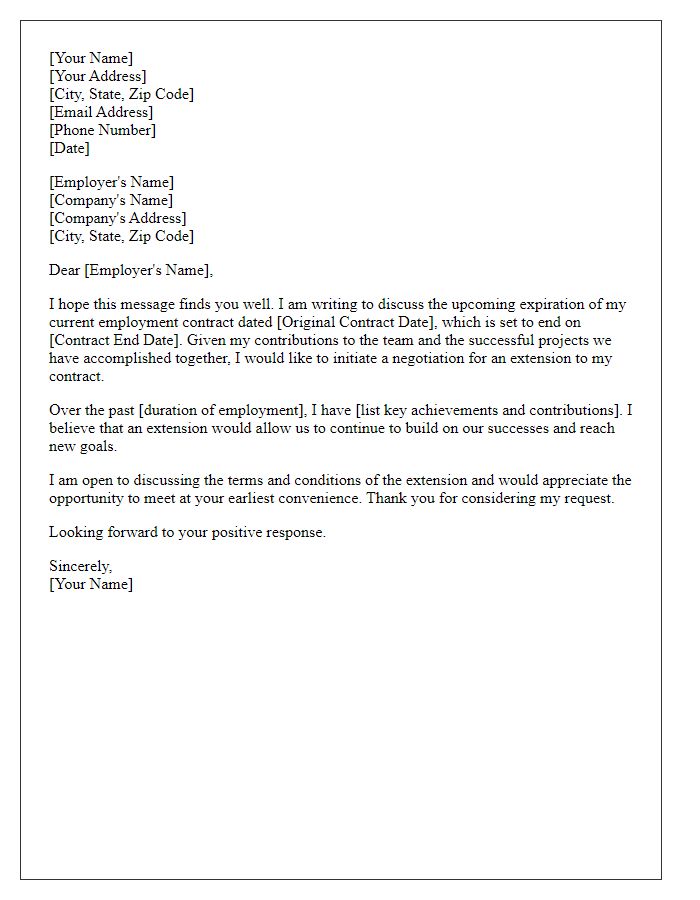
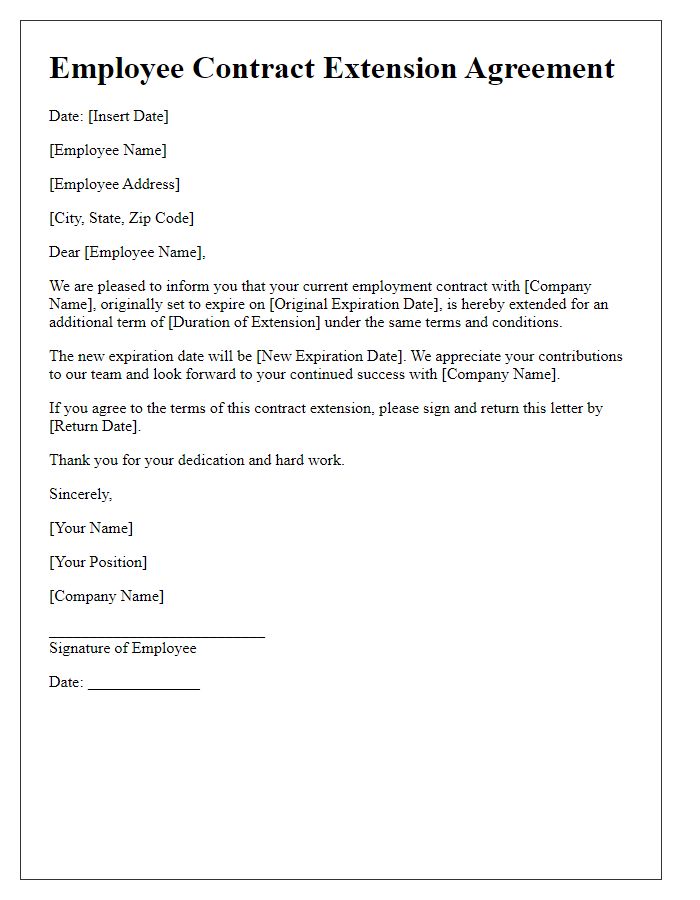
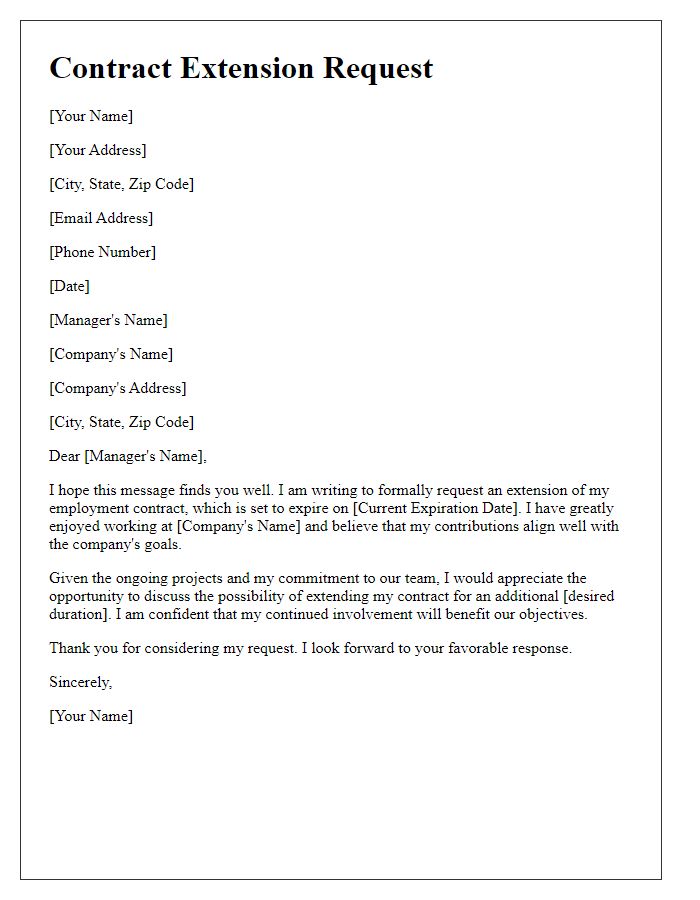
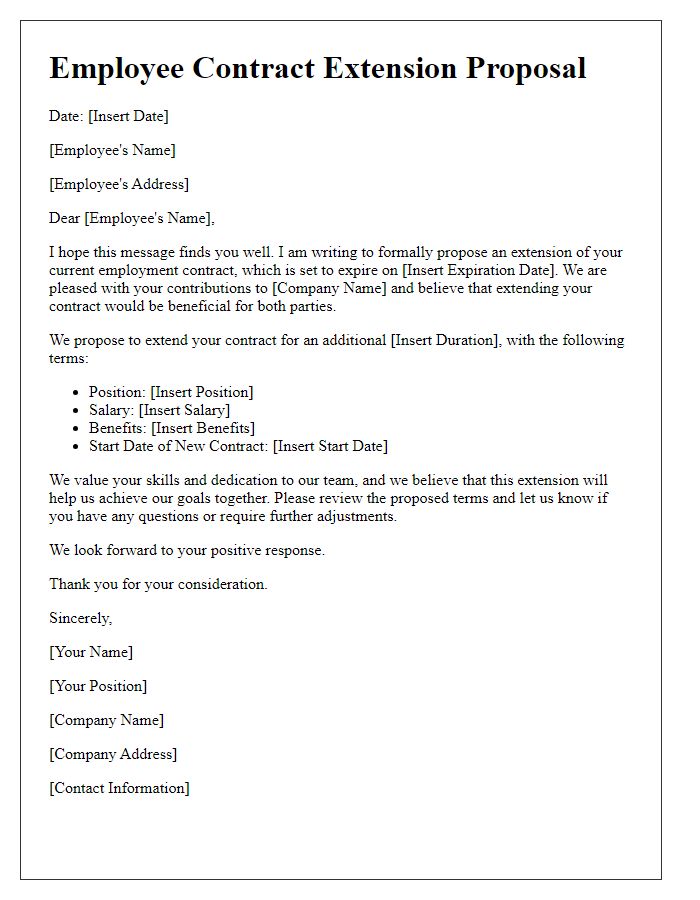
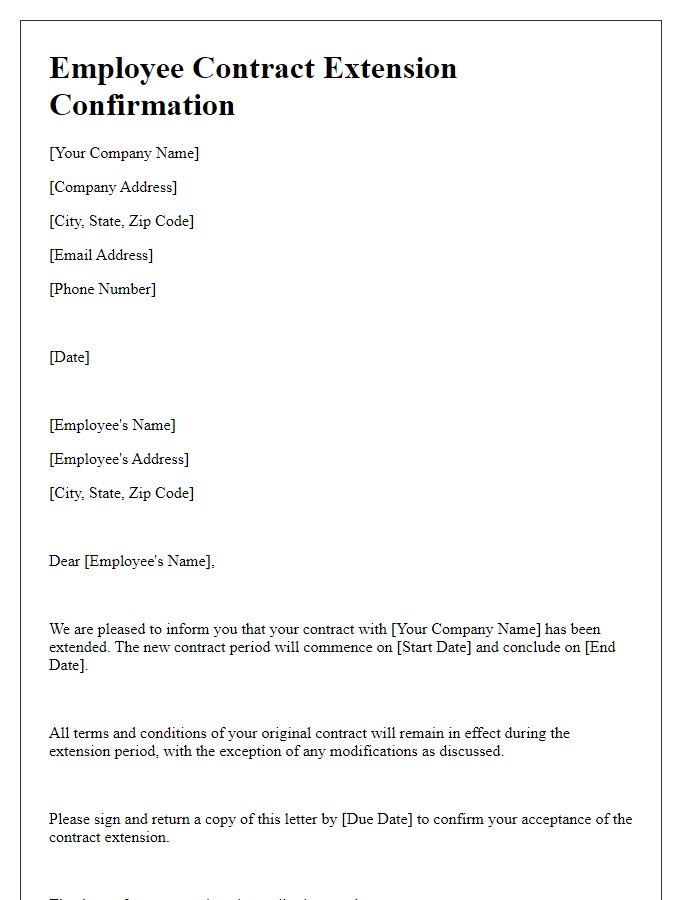
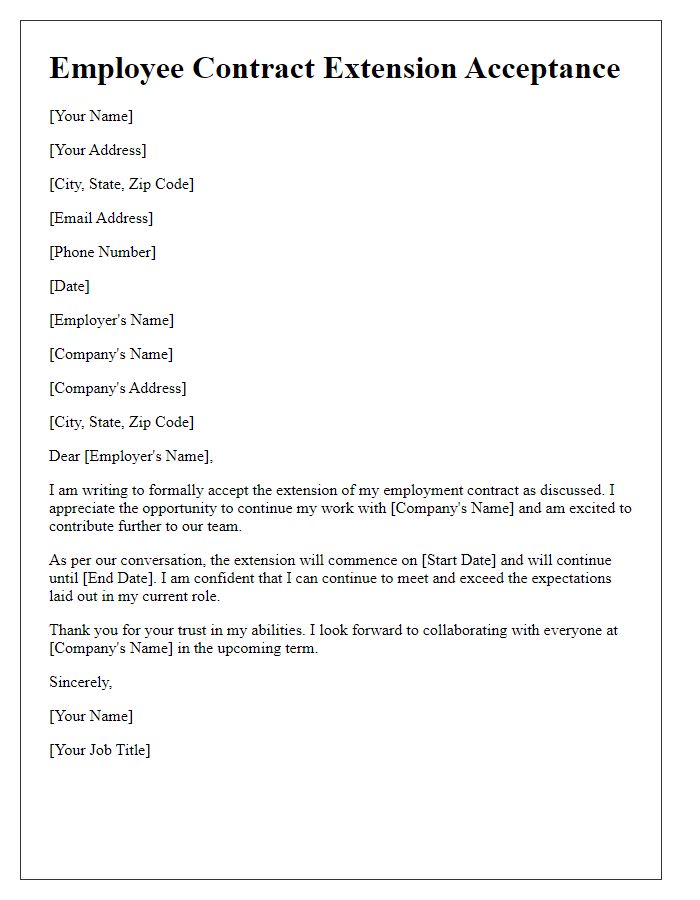
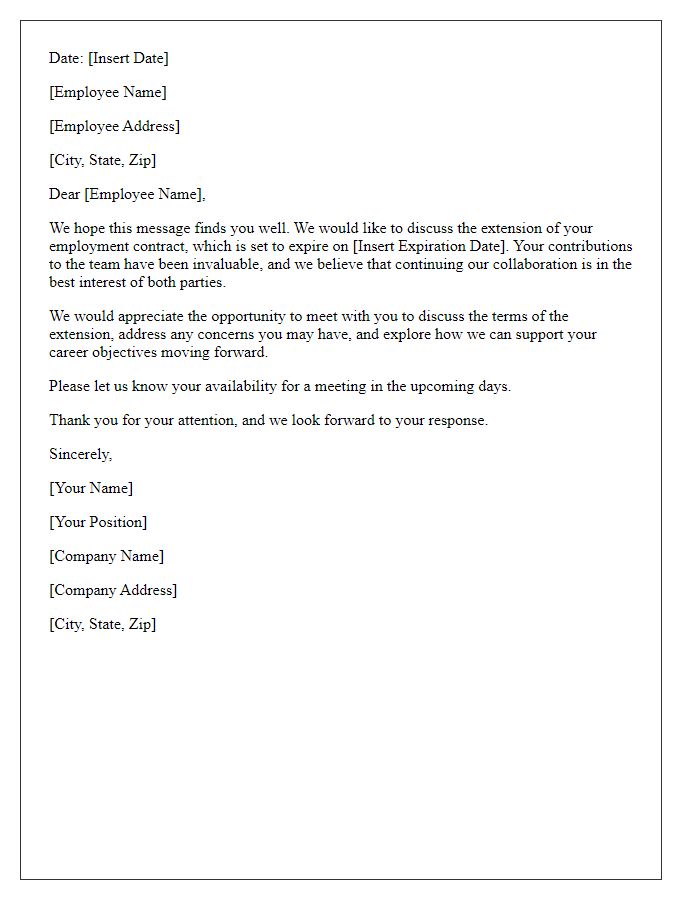
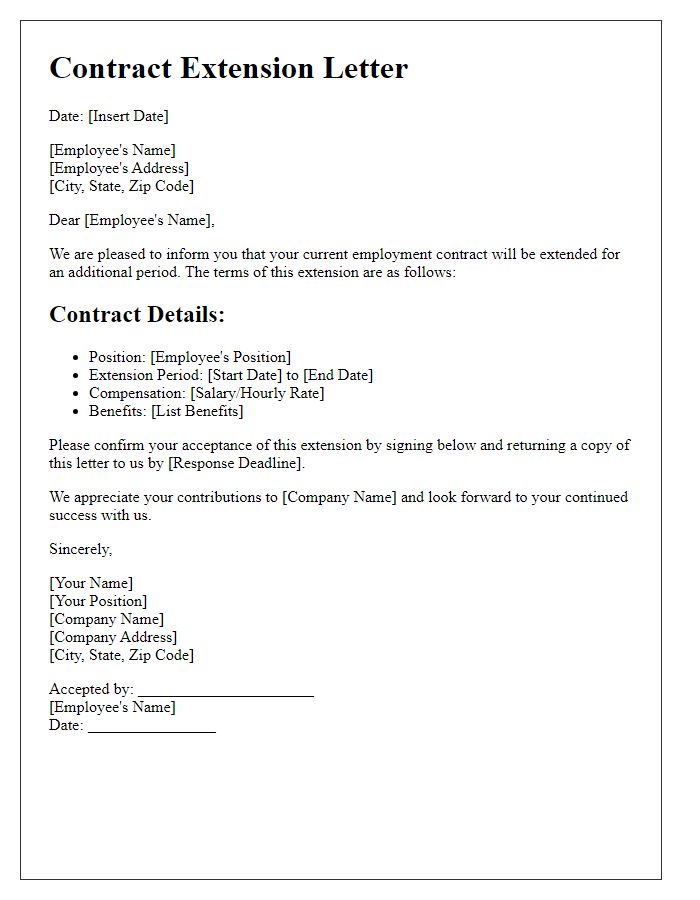
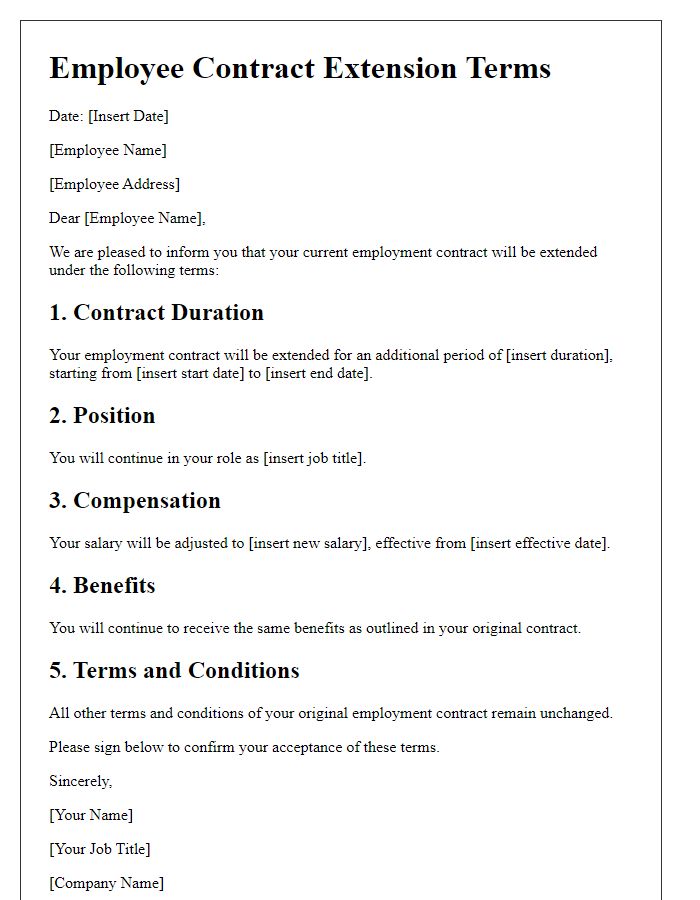
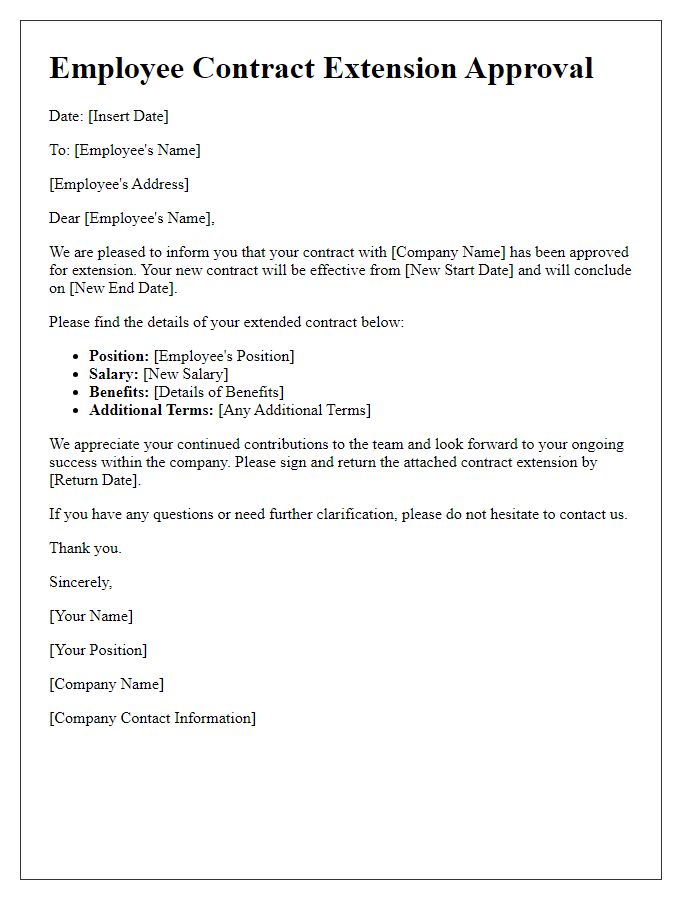


Comments